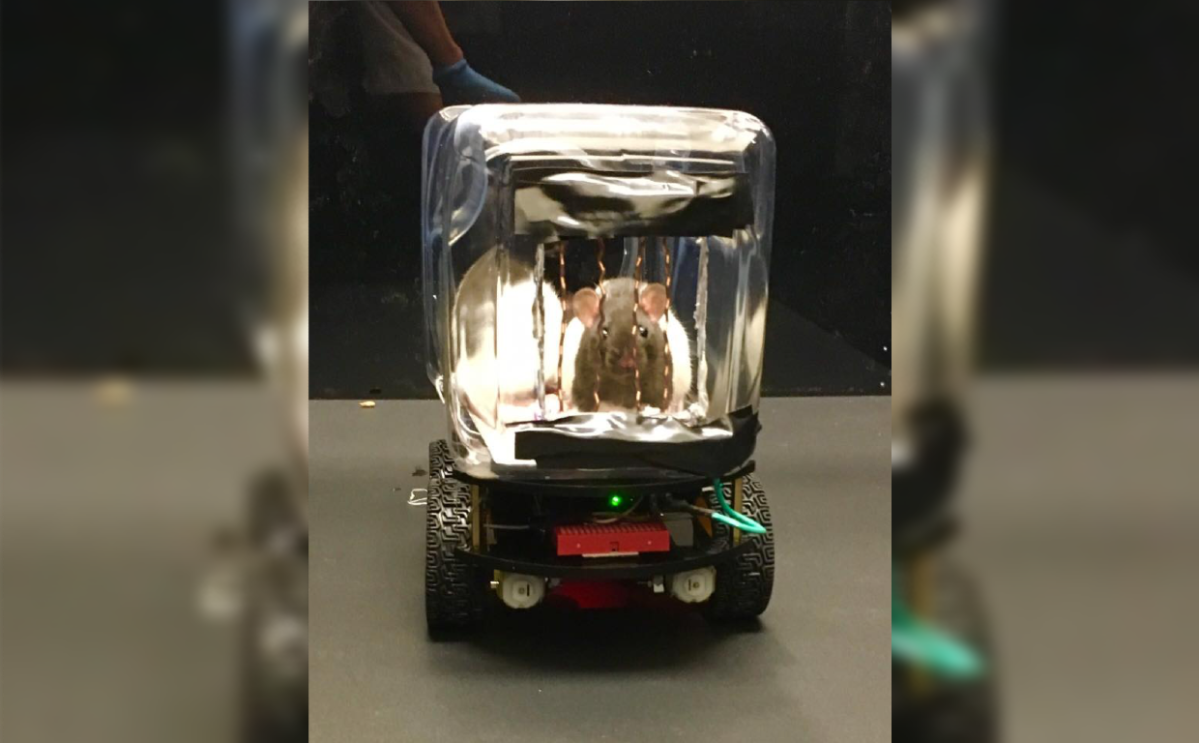A group of rats at the University of Richmond in Virginia have mastered the ability to drive miniature cars to collect food, with a recent study showing the animals find learning to drive — among other skills — relaxing.

While rats have already shown they can find their way through mazes, press bars and recognize objects, Kelly Lambert, a professor of psychology at the university, told NewScientist her team wanted to know whether rats could learn complex tasks like how to operate a moving vehicle.
The team’s findings were recently published in the Behavioural Brain Research journal in an academic article titled “Enriched environment exposure accelerates rodent driving skills.”
READ MORE: Why these scientists are catching rats in downtown Vancouver — and what they found out
For the experiment, the rats were given custom-made vehicles, which were constructed out of a plastic food container with an aluminum floor and a steering wheel made of three copper bars.
When the rats stood on the aluminum floor and touched their paws to the copper bars, an electrical circuit was completed, moving the car.
The group of 17 rats — six female and 11 male — were even trained to navigate direction, which required them to grip the left, middle or right bars.
“They learned to navigate the car in unique ways and engaged in steering patterns they had never used to eventually arrive at the reward,” Lambert told NewScientist.

Lambert went on to say the rats seemed relaxed by the act of driving. Researchers chose to measure stress in the animals by monitoring levels of cortisol, which is considered a marker of stress, and dehydroepiandrosterone, a hormone that counteracts stress. According to NewScientist, the study’s findings showed the ratio of dehydroepiandrosterone to cortisol found in the rats’ feces grew throughout the rats’ driving training.
Lambert has reached the same conclusion in previous studies, like when she taught rats to dig for food. It’s a reaction she calls “self-efficacy or agency.” The scientist adds that this finding suggests the rats may find satisfaction in mastering a skill just as humans do.
To take this experiment even further, Lambert and her team compared results between rat-driven cars and remote-controlled cars in which the animals were passengers.
READ MORE: Rat breaks into ATM in India, destroys over $19,000 in bills
The rats who drove were less stressed than the rats who were driven.
“I do believe that rats are smarter than most people perceive them to be and that most animals are smarter in unique ways than we think,” Lambert told NewScientist.
She also told Insider that environment had a huge impact on how well the rats learned. Rats kept in stimulating environments picked up driving skills much faster than those living in boring atmospheres.
“Those data suggest that we gain ‘experiential capital’ if we have challenging, dynamic lifestyles that transfer to learning acquisition,” she said.
—
- Ex-cop accused of slaying 2 women, abducting child, kills himself in police chase
- U.S. is sending Ukraine longer-range weapons with new aid. Why it matters
- Four injured after military horses break loose, stampede in London, U.K.
- Dolphin washes up on beach with bullets lodged in spine, heart and brain





Comments